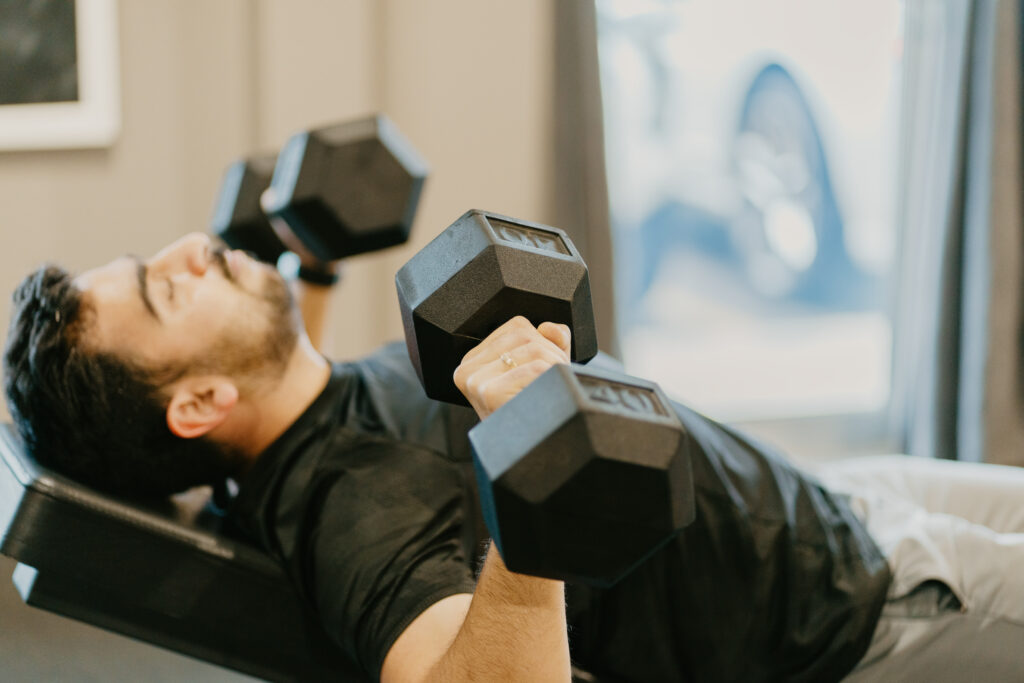Shoulder health is a vital component of overall upper body strength and functionality. Whether you’re an athlete, fitness enthusiast, or simply someone looking to maintain good health, it’s crucial to pay attention to your shoulders. While there are many exercises that can contribute to strong and stable shoulders, the bench press is often overlooked as a means to achieve better overhead shoulder health. In this blog post, we’ll explore how bench pressing can help improve your shoulder health and provide tips on incorporating it into your fitness routine safely.
Understanding the Importance of Shoulder Health
Before diving into the benefits of the bench press, it’s essential to understand why shoulder health matters. Your shoulders are incredibly mobile joints that allow you to perform a wide range of movements. However, this mobility comes at a cost—shoulder joints are inherently unstable and prone to injury if not properly strengthened and maintained.
Whether you’re lifting groceries, reaching for items on high shelves, or participating in sports, strong and stable shoulders are crucial for injury prevention and optimal performance. Neglecting your shoulder health can lead to problems such as impingement, rotator cuff injuries, and poor posture.
The Role of the Bench Press
While the bench press is primarily known as a chest exercise, it also engages several key muscles around the shoulder joint. Here’s how bench pressing can contribute to better shoulder health:
- Strengthening the Chest Muscles: The pectoral muscles are directly involved in the bench press. As you perform the exercise, your chest muscles become stronger, which helps provide support and stability to the shoulder joint.
- Engaging the Anterior Deltoids: The front part of your shoulder, known as the anterior deltoids, is also activated during the bench press. This engagement helps balance the strength between the front and rear parts of the shoulder, reducing the risk of imbalances and potential injuries.
- Stabilizing the Scapulae: Proper scapular stability is crucial for shoulder health. The bench press encourages scapular retraction and depression, promoting better shoulder blade control. This stabilization is vital for overhead movements.
- Enhancing Rotator Cuff Function: The rotator cuff muscles play a significant role in shoulder stability. While they aren’t the primary focus of the bench press, they are indirectly involved in stabilizing the shoulder joint during the exercise.
Tips for Incorporating Bench Press into Your Routine
To reap the shoulder health benefits of the bench press, follow these guidelines:
- Proper Form: Always use proper form to prevent injury. Keep your shoulder blades retracted and depressed, maintain a slight arch in your lower back, and ensure your elbows stay at around a 45-degree angle from your torso.
- Warm-up: Begin your workout with a thorough warm-up, including shoulder mobility exercises and light sets of bench press to prepare your shoulder joints.
- Progressive Overload: Gradually increase the weight you lift to build strength safely. However, don’t sacrifice form for heavier weights.
- Incorporate Variations: In addition to the standard bench press, include variations like incline and decline bench presses to target different areas of your chest and shoulders.
- Rest and Recovery: Allow your muscles to recover between workouts. Overtraining can lead to injury and hinder your progress.
- Consult a Professional: If you’re new to bench pressing or have preexisting shoulder issues, consider consulting a fitness trainer or physical therapist to ensure you’re performing the exercise correctly and safely.
The bench press is a valuable addition to your fitness routine not only for building chest strength but also for improving shoulder health. By following proper form and incorporating bench pressing into a well-rounded workout regimen, you can strengthen the muscles around your shoulder joint, reduce the risk of injury, and enhance your overall upper body performance. Remember, consistency, proper technique, and patience are key to reaping the long-term benefits of this exercise.

